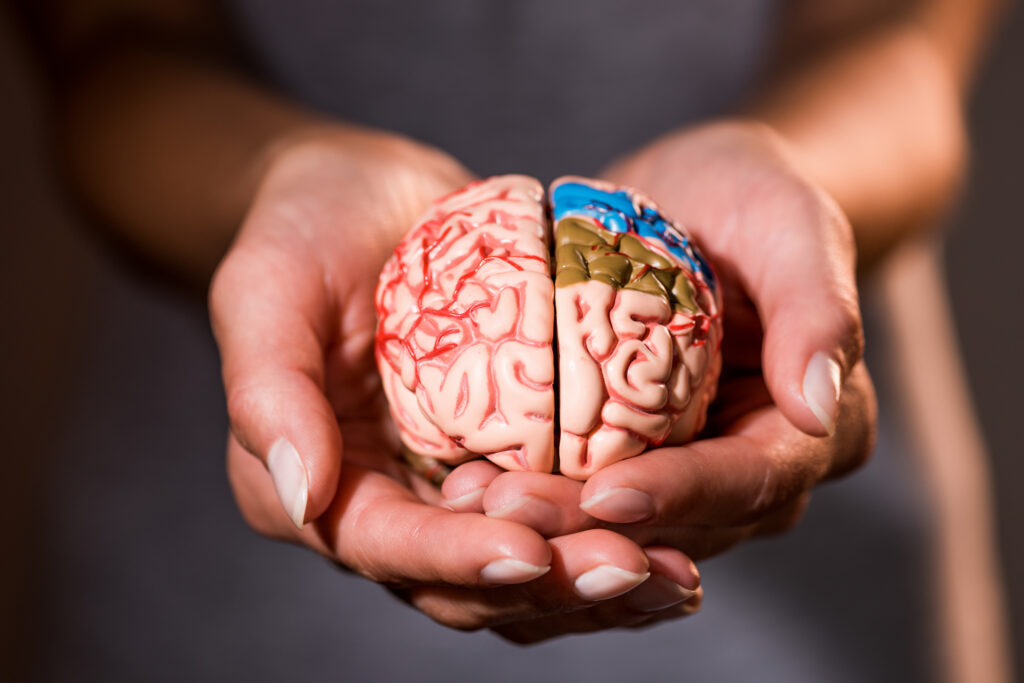Have you heard about employers supporting microdosing protocols for their employees as part of their benefits package? Or of leadership teams working with psychedelics during company offsites? If not, that’s okay. But might want to understand why psychedelics will continue to insert themselves in the discussion around mental wellbeing.
Clinical trials abound, and psychedelics have received a lot of attention in recent years as studies investigate the potential benefit of these substances for mental health. Some of the ongoing clinical trials for specific indications include:
- MDMA for post-traumatic stress disorder (PTSD);
- Psilocybin for treatment-resistant depression (TRD), major depressive disorder (MDD), PTSD, fibromyalgia, anorexia nervosa, alcohol-use disorder (AUD), generalized anxiety disorder (GAD), obsessive compulsive disorder (OCD), and adjustment disorder;
- Ketamine for alcohol-use disorder (AUD), major depressive disorder (MDD), and PTSD;
- 5-MeO-DMT for treatment-resistant depression, postpartum depression, bipolar disorder, alcohol-use disorder (AUD), and depression & anxiety in Alzheimer’s;
- LSD for generalized anxiety disorder (GAD) and cluster headaches; and
- Ibogaine for opiate withdrawal syndrome. [1]
Psychedelic Research and The War on Drugs
Psychedelic research effectively ended in the US with President Nixon’s War on Drugs and the Controlled Substances Act of 1971 [2]. Before these events, there was a rich history of psychedelic exploration and research in the US. Albert Hoffman, a Swiss chemist, discovered the psychoactive properties of LSD in 1943 on his fateful bicycle ride after ingesting the compound. Bill Wilson, the co-founder of Alcoholics Anonymous, administered LSD in clinics in the 1950s, believing it was an important tool for the spiritual awakening needed to spur recovery from addiction. The use of psilocybin mushrooms came into Western awareness after Gordon Wasson, a VP at J.P. Morgan, sat with Maria Sabina in Oaxaca for a Mazatec mushroom ritual. His experience was then published in Life magazine in 1957.
Thanks to the 30-year hiatus from clinical research and initiatives like DARE with “Just say no to drugs!” many of us were raised to believe that all drugs are bad. Research did not begin again until the early 2000s when John Hopkins began studying psilocybin. In the last decade, the number of publications on psychedelics and mental health has exploded.
The History of Psychedelic Use
Interestingly, psychedelics have been used across the globe in community and ritual settings for thousands of years. The earliest record dating back to 8600 BC with evidence of San Pedro cactus (Huachuma) being utilized in Peru. The first evidence of psilocybin use dates to 6000 BC in Egypt and the greater Sahara area. [3]
Terence and Dennis McKenna proposed “The Stoned Ape Hypothesis” in the 1970s – that apes, including our ancestors, consumed magic mushrooms which gave them a competitive advantage. They propose that human evolutionary advancement and the comprehension of language was in part due to our ancestor’s early experiences with these mushrooms. This theory has been widely criticized for its unsubstantiated proof, but it’s interesting to think about humans and mushrooms evolving together.
Psychedelics and Mental Wellness
What do mental health conditions and emotional suffering share? A feeling of disconnection. This includes disconnection from the self, others, and the world. In an open-label trial of psilocybin for treatment-resistant depression, patients noted two significant changes. Firstly, they shifted from disconnection to connection. Secondly, they moved from emotional avoidance to acceptance. [4]
One of the main reported benefits of psychedelic use across multiple studies is cognitive flexibility. When we relax our beliefs about ourselves, about others, or about the way the world works, we have greater freedom and choice. We are no longer boxed-in by labels, be those psychiatric diagnoses or societal roles.
Microdosing and Mental Wellness
Microdosing is the act of using a sub-perceptible amount of psychedelic drugs to improve mood or enhance cognitive performance. As these small amounts of psychedelics (such as LSD or psilocybin mushrooms) are sub-perceptible, there are no major physiological changes that one would typically associate with “tripping” (e.g., hallucinations).
Scientific research on microdosing is in the beginning stages with much of the research consisting of anecdotal data or self-reported surveys. Despite the general lack of scientific data on microdosing, some recent studies suggest it could reduce stress, anxiety, and depression while improving mood and cognitive function. [5] Prochazkova et al., 2018; [6] Rootman et al., 2022
Another recent study suggests that the benefits of microdosing could be attributed to the placebo effect. With 191 participants, this study was the most extensive placebo-controlled study on microdosing. The study found that while the microdose group did, indeed, report improved psychological outcomes (mood, energy, and creativity), so did the placebo group, with little difference between the two! [7]
Conclusion
The renewed interest in psychedelic research promises advancements in mental health treatment. Consequently, clinical trials explore the efficacy of MDMA, psilocybin, ketamine, and LSD. Moreover, these compounds show potential to provide relief where traditional therapies have failed.
For many individuals, psychedelics offer a pathway to overcome disconnection and foster emotional acceptance. Furthermore, microdosing, though still in its early stages of scientific validation, shows potential for enhancing mood and cognitive function. Consequently, it will be fascinating to watch as more companies adopt microdosing programs in their employee benefit packages, incorporating these doses for creativity in team ideation sessions.
If you’d like to learn more about psychedelics’ role in the corporate world and how it can transform your leadership, schedule a complimentary call with Victoria: victoria@humessence.com.
References
- https://psychedelicalpha.com/data/psychedelic-drug-development-tracker
- https://www.beckleyfoundation.org/psychedelic-research-timeline-2/
- Pasquali, Luca. “Leshoma, the visionary plant of southern Africa.” Antrocom: Online Journal of Anthropology 17.1 (2021).
- Watts, R., Day, C., Krzanowski, J., Nutt, D., & Carhart-Harris, R. (2017). Patients’ Accounts of Increased “Connectedness” and “Acceptance” After Psilocybin for Treatment-Resistant Depression. Journal of Humanistic Psychology, 57(5), 520-564.
- Prochazkova L, Lippelt DP, Colzato LS, Kuchar M, Sjoerds Z, Hommel B. Exploring the effect of microdosing psychedelics on creativity in an open-label natural setting. Psychopharmacology (Berl). 2018 Dec;235(12):3401-3413.
- Rootman, J.M., Kiraga, M., Kryskow, P. et al. Psilocybin microdosers demonstrate greater observed improvements in mood and mental health at one month relative to non-microdosing controls. Sci Rep 12, 11091 (2022).
- Szigeti B, Kartner L, Blemings A, Rosas F, Feilding A, Nutt DJ, Carhart-Harris RL, Erritzoe D. Self-blinding citizen science to explore psychedelic microdosing. Elife. 2021 Mar 2;10:e62878.

Victoria is a Psychedelic Leadership Coach with 15 years in corporate roles that spanned sectors from energy to medical technology, including startups and Fortune 100 companies. She harnesses her expertise to guide conscious leaders across industries including tech, drug development, psychiatry, digital health, and patient care.
Victoria’s unique professional path was enriched by growing up between Alaska and Indonesia, an adventurous five-year sailing expedition to Ecuador in a 40-foot sailboat, and a year of van-life in the Pacific Northwest. She lives in Bend, Oregon with her husband, doggo and two kitties.


